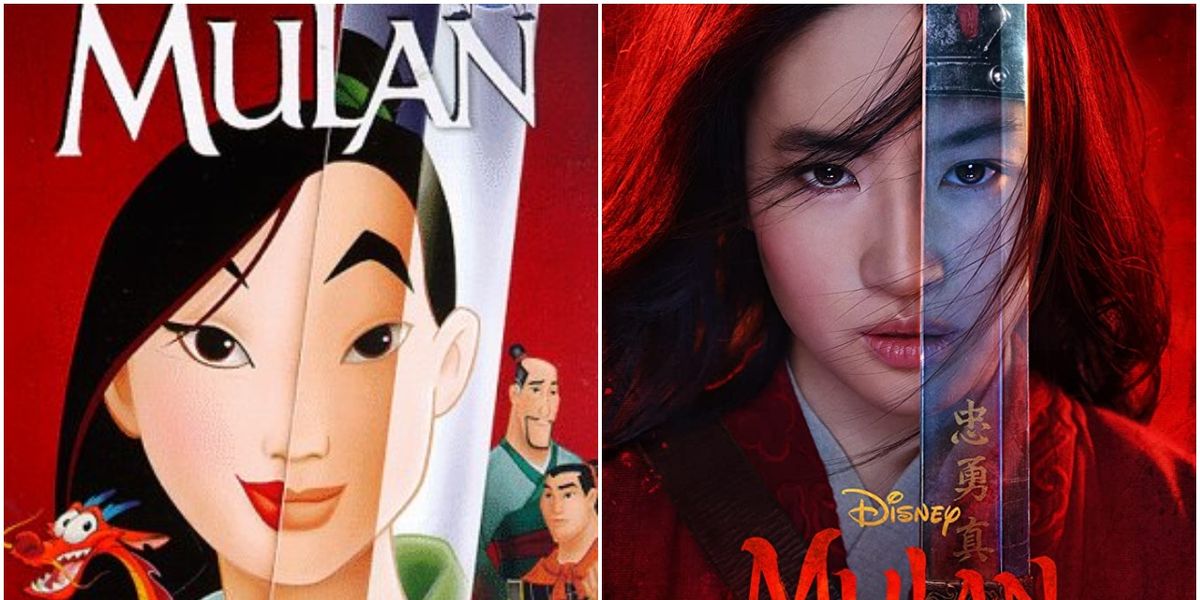Disney’s live-action remakes of their animated back catalogue have provided another hugely lucrative revenue stream for a multimedia conglomerate that already has Star Wars, the Marvel Cinematic Universe and Pixar at their disposal.
While the majority of these re-imaginings are painfully lacking in originality and much happier to simply recreate the familiar plot beats and musical numbers of their animated predecessors instead of trying anything new or daring with the material, the numbers don’t lie.
To date, the remakes have brought in almost $9 billion at the box office despite most of them receiving a critical reaction that could be described as muted at best. With the notable exception of Tim Burton’s Alice in Wonderland, which surprised everyone by racing past the billion dollar mark a decade ago, presumably because it was the first major 3D blockbuster to follow in the wake of Avatar’s unprecedented success, the most beloved animations tend to see their remakes bring in the biggest box office.

Beauty and the Beast, Aladdin and The Lion King all raked in at least $1 billion, with the latter ending up as the seventh highest-grossing movie ever made, giving it the rare distinction of being Disney’s biggest earner as both an animated and live-action endeavour.
The latest to roll of the production line is Niki Caro’s $200 million epic Mulan, and up until earlier this year it was virtually guaranteed to be one of the 2020’s biggest hits. The 1998 original holds a special place in the heart of many fans, and with the live-action update being specifically catered to appeal to the all-important Chinese market, a box office haul of ten figures seemed like a foregone conclusion.
Mulan was originally scheduled to hit theatres in March, but then the world as we knew it changed, and the domino effect saw virtually every major release on the calendar delayed or shunted into 2021. The longer this carried on, the more the speculation began to point in the direction of Mulan avoiding the big screen entirely and heading exclusively to Disney’s in-house streaming service.
You can understand why it was an option, when Disney Plus had been crying out for some high-profile original content ever since The Mandalorian wrapped up the first run of episodes, and by debuting it onto a platform they own, the studio wouldn’t have to split any of the profits with theatre owners or deal with any widespread marketing and distribution costs.
On the other side of the coin, the theatrical experience was already close to being on its knees, and taking away a title that was guaranteed to be one of the year’s biggest earners was going to hit an industry that was already struggling right in the pocket.
That being said, Disney didn’t become the all-conquering overlords of popular culture by playing nice, and when there’s money to be made you can guarantee they’ll leave the little guy sitting by the side of the road as they race off into the distance.
Eventually it was made official, and Mulan was released on September 4th to customers willing to pay a one-off fee of $29.99 for the privilege. Based on the fact that downloads for the Disney Plus app increased by 68% during the weekend it was made available, the strategy looks to have paid off.
A lot of subscribers were unhappy at the idea of having to shell out extra cash to watch a movie on a streaming service they already pay for on a monthly basis, especially when it was swiftly confirmed that Mulan will be added to the library at no extra cost as soon as December.

Besides the obvious piracy issues relating to a big budget blockbuster being exclusive property of the digital realm, Mulan’s release model could also change the theatrical experience as we know it. If the rest of Hollywood’s major studios decide that they don’t want to play ball either, and opt to release their biggest movies straight to streaming at the expense of screening it in theatres, then both the larger and smaller independent chains stand to lose out on billions in revenue while the richest entities in the industry rake in bigger profit margins than ever.
The Marvel Cinematic Universe’s Black Widow is still tentatively set for November, but there’s no stopping Disney if they decide that the first instalment in the franchise following Avengers: Endgame would be much better off as a Disney Plus exclusive.
There were widespread reports that many theatre owners were on the verge of bankruptcy as it is given the events of the last few months, and any chance of a sustained recovery would be severely impacted if the movies that brought in the biggest audience were now available to paying customers from the comfort of their own homes.
As it stands, no other major releases have been touted as skipping theatres, but Netflix’s business model has seen them spend similar sums on their in-house projects as the major studios do, and they’re running away as the winners in the streaming wars with over 100 million more subscribers than their nearest competitors.
The rise of streaming services have already revolutionised the way we consume content, with people growing impatient at the thought of having to wait one whole week for a new episode of a TV show, like that wasn’t the norm just a few years ago.
If Mulan starts a trend, then customers could eventually end up begrudging a trip to their local multiplex and catching the hottest new releases on the biggest screen possible, which has been the premiere way to enjoy movies for close to a century.
Disney might be claiming that the Mulan experiment is just a one-off, but you can guarantee they’ll be keeping a very close eye on the numbers to see how many purchases have been made, and if it works out that they’re profiting more than they would from a standard theatrical release, then the business could be facing a seismic shift from which the theatrical experience may never recover.
Written exclusively for our company by Scott Campbell
Source – CoolMambo.com

